The shortage of talent is one of the biggest issues in Bulgaria’s labour market — especially evident in the country’s symphony orchestras, both in Sofia and across the regions. The ratio of Bulgarian to foreign musicians in a regional orchestra like the one in Vratsa is roughly 50:50.
While the ensemble we'll be talking about is a strong example of how Bulgarians and foreigners can work together in harmony, seeing the Simphonietta Vratsa orchestra not just as a job but as something they genuinely care about, and viewing their conductor as someone they can always rely on, the trend outlined by conductor Hristo Pavlov in an interview with Radio Bulgaria makes one thing clear: the work is anything but easy.
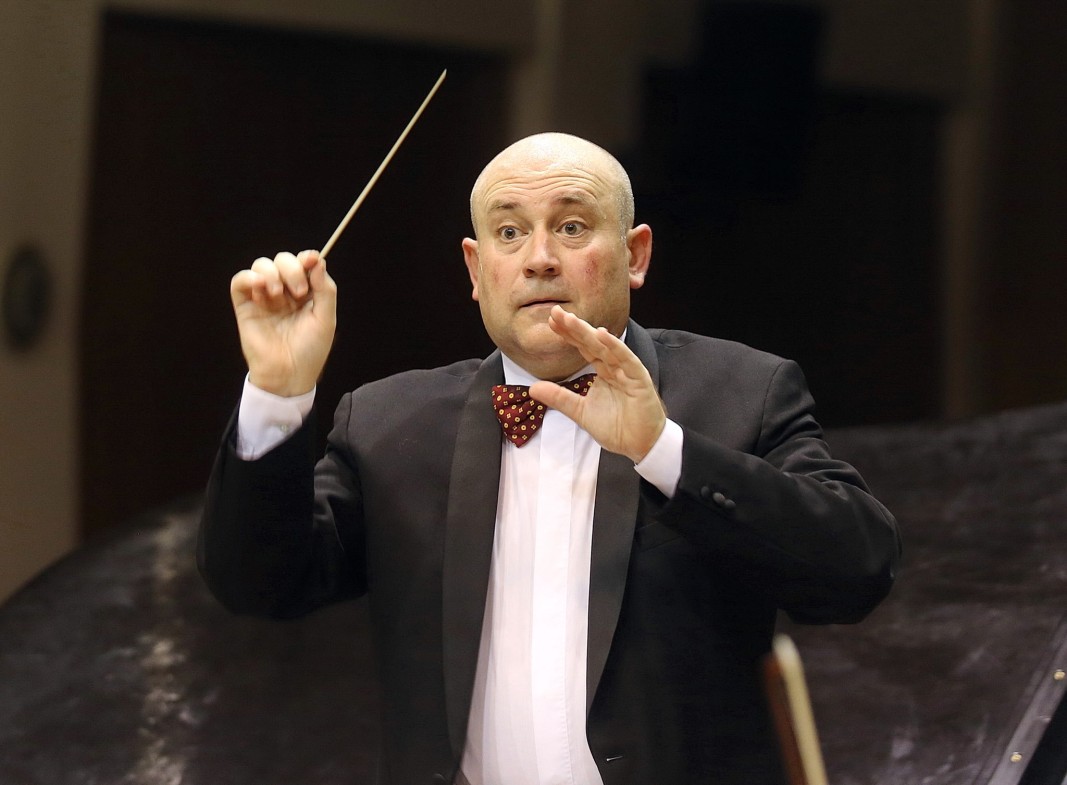
“This is only just starting to become common practice here — unfortunately, out of necessity — because there's a severe shortage of performers, and for some instruments, none at all, the conductor admits. Perhaps if music education once again became a state priority, things might change one day. It usually takes more than a generation to see the effects of building something from the ground up, whereas losing it can happen overnight. I don’t know if I’ll live to see a serious reversal of the trend.”
According to him, this is part of a broader global pattern. He cites Japan and South Korea as examples where the trend has been reversed — more musicians are now being trained than there are available jobs.
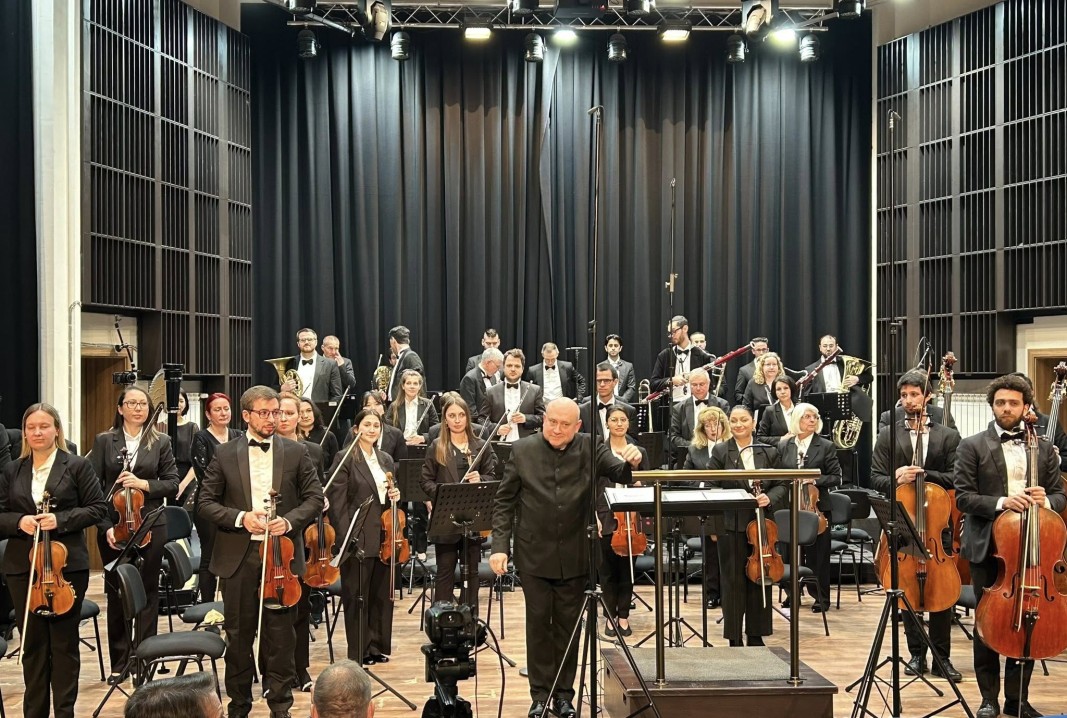
One of the orchestra’s most incredible opportunities this year came in February, when the world-renowned British violinist Nigel Kennedy chose them to perform with him in two concerts — one in Sofia and one in Varna.
"It was an incredibly rewarding experience, especially for the younger members of the orchestra — many of whom had barely played in an ensemble before joining us and were only just beginning to encounter renowned musicians.
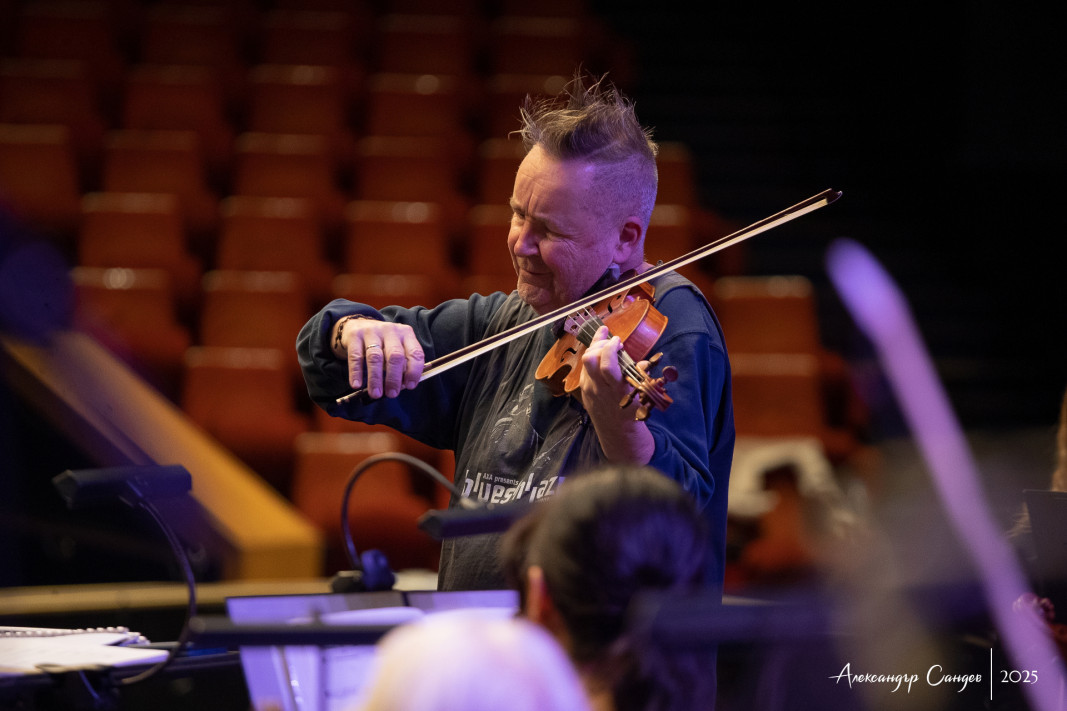
The good news is that Nigel Kennedy was equally impressed. He truly enjoyed working with so many young performers who fully met his musical expectations. And the expectations of someone of his stature can be pretty much anything," says our interviewee.
“He can play any piece because he's seen it all in music, played it, and now he's recreating it as a composer. He is an exceptionally free-spirited musician, which is why he incorporates all the genres he can think of into his works in an eclectic way — not in a negative sense, but in a manner that is characteristic of our time.
He has demands, but he is extremely convincing in them, as he immediately plays what needs to be played and almost always explains why he wants it that way. The reason is that he tries to interpret music that has already passed through his hands, ears, mind, and heart, blending it in a new way to create something different yet still recognisable.”
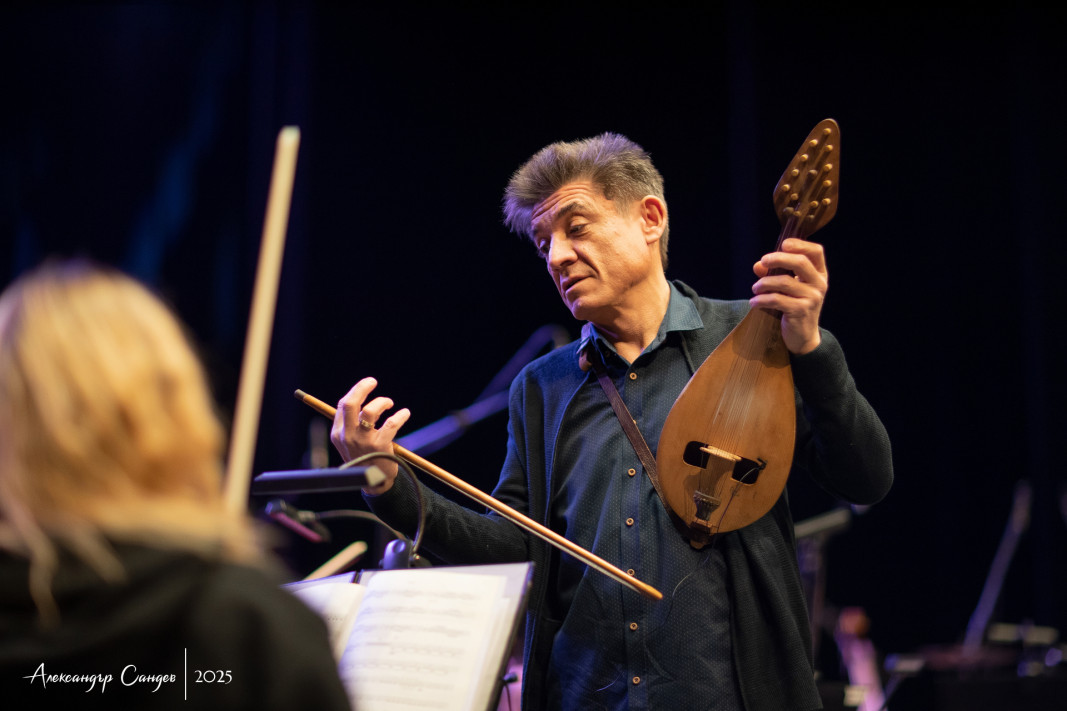
Both concerts included pieces by the popular Bulgarian composer and gudulka player Georgi Andreev. According to Associate Professor Pavlov, Andreev is a regular guest at Nigel Kennedy's concerts, and the two musicians enjoy performing together and competing in front of the crowd.
However, Associate Professor Pavlov did not ask Nigel Kennedy what it is about our country that draws him back so often to perform concerts here. Instead, the conductor shared insights from other well-known musicians.
"Everyone agrees that the audience in Bulgaria is very responsive. Even when they receive someone more reservedly — a performer they don’t know — they still express their emotions fully and sincerely. Elsewhere, the performer's fame often influences the audience's reaction, but this has never been the primary factor in the Bulgarian audience's response.
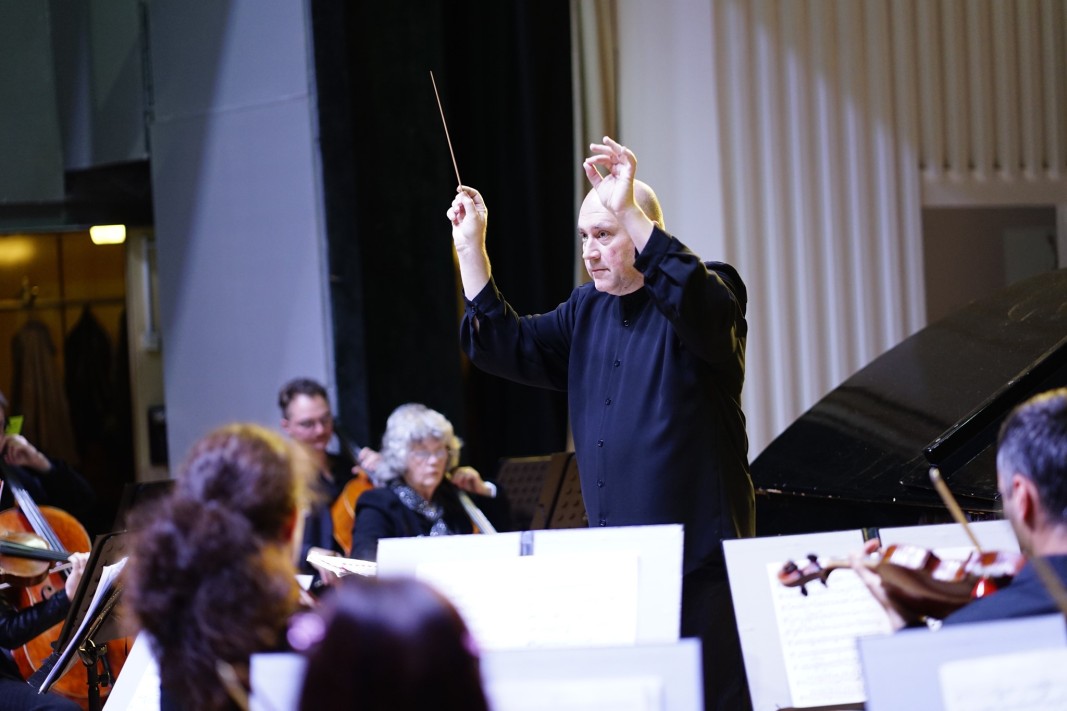
For musicians like him, who cross all boundaries, it’s important that people recognise the works of other composers they quote in their performances — something that Bulgarian audiences do well, unlike many outside Europe. In Bulgaria, the audience reacts to these references, and I believe they recognise the pieces because I can hear their response when it happens. They understand that it is a conversation within the conversation between the performer and themselves.”
Edited by Desislava Semkovska
Published and translated by E. Radkova
Photos: Facebook /Vratsa Symphony, vso.bg, Facebook /Christo Pavlov, Alexander Sandev
On the day the Orthodox Church celebrates the Feast of St. Archangel Michael, the National Archaeological Reserve "Deultum-Debelt" will mark 1,160 years since the Christianization of the Bulgarian people. The event will be attended by Vice..
In his latest exhibition, Nikolay Buzov follows the principles of calligraphic art, offering a polyphony of abstract symbols and signs. His canvases emanate the sense of ease and freedom with which he creates his geometric structures. “The title..
On November 11 at 6:30 p.m., the Consulate General of Bulgaria in New York will host a special screening of a short film (18 min.) dedicated to the 120th anniversary of the prominent Bulgarian intellectual, composer and pianist Dimitar Nenov . During..
The eighth International Violin Competition “Vasco Abadjiev” will take place in Sofia from 20 to 23 November, attracting record interest. The organizers..

+359 2 9336 661
